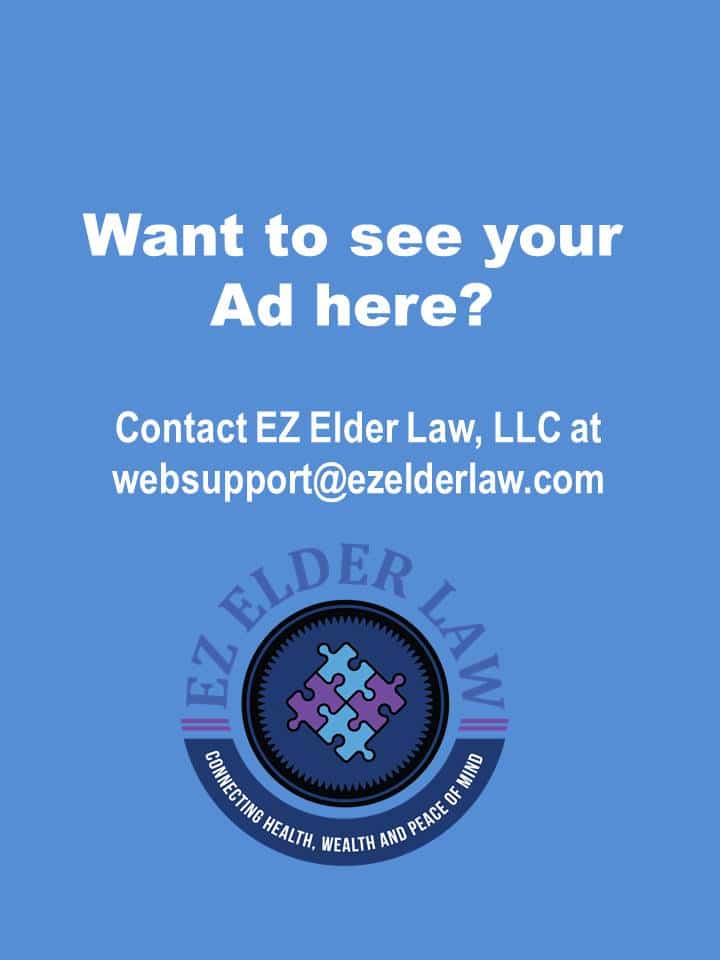Individuals who are aged (age 65 or older), blind or disabled may be entitled to Medicaid if they are medically eligible and financially needy. In Georgia and Tennessee, SSI recipients are immediately eligible. See 42 U.S.C. § 1396a(a)(10)(A)(i)(II). Although the focus here is on long term care Medicaid, other classes of assistance make Medicaid available to certain special classes such as pregnant women and children needing medical care.
- 2111 – Supplemental Security Income (SSI) Medicaid (Georgia)
- ABD Policy Manual 115.025 – SSI Cash Recipient (Tennessee)
After establishing that one is aged, blind or disabled, there are three elements to Medicaid eligibility: categorical (or technical) eligibility; medical eligibility; and financial eligibility. Categorial and Medical criteria are discussed in this chapter. Financial eligibility is discussed in later chapters. Regardless, for aged, blind and disabled individuals, States may not use requirements more restrictive than those used for SSI. 42 CFR § 435.401(c)(2). See 42 CFR § 435.121 and § 435.230 for exceptions in 209(b) states.
In general, an applicant is entitled to Medicaid if he or she meets all criteria for eligibility during a given month and files an application for Medicaid. Retroactive eligibility is available in most States if the applicant met all eligibility criteria during the three consecutive months immediately preceding the application. Coverage is provided for any full month as long as the applicant meet all eligibility criteria at any time during the month. 42 U.S.C. § 1396a(a)(34). However, as discussed in chapters relating to financial eligibility, for States using the “first moment of the first day of the month” (FOM) rule, if the applicant had countable resources in excess of the resource limit, then eligibility may be denied until the month following spend-down.
- POMS SI 01110.600 (SSI First Moment of the Month Rule)
- 2300 – ABD Medicaid Resources Overview (Georgia ABD – FOM Valuations)
Depending on State rules, the effective date of eligibility for benefits is the first day of the month for the month when the application was filed, or the date of application. assuming all of the eligibility requirements are met. In most States, retroactive eligibility is available for up to three months prior to the month of filing if the applicant was eligible during the retroactive months.
A standard of promptness applies when the agency processes Medicaid applications. Unless the applicant applies on the basis of disability, the agency must process the application within 45 days, absent authorized delays, such as the applicant or an examining physician fails to take a required action, or there is an administrative or other emergency beyond the agency’s control. 42 C.F.R. § 435.912(c)(3)(ii). If the applicant applies on the basis of disability, the standard of promptness is 90 days. 42 C.F.R. § 435.912(c)(3)(i).
- Georgia Manual § 2060-5 (Application Processing, including Standard of Promptness)
Georgia and Tennessee are SSI States, which means disability determinations for persons under 65 are made by the Social Security Administration. In Georgia, the Department of Community Health (DCH) is the official Medicaid agency. It contracts with the Department of Family and Children’s Services (DFCS) to provide Medicaid eligibility determinations for clients who do not receive Supplemental Security Income (SSI).” [Note 1]. The Bureau of Tenncare is Tennessee’s Medicaid Agency. T.C.A. § 71-5-102. The Department of Human Services processes Tenncare applications; online applications are handled through Tenncare Connect.
Note 1: The DFCS Manual Chapter 300 described the contractual relationship between DCH and DFCS was at http://www2.state.ga.us/departments/dhr/E-%20300%20Admin-%20Jan.%202000%20MW.pdf. Online applications are handled through the Georgia Gateway.
Note 2: Tenncare – Applying for Services
The aged, blind, and permanently and totally disabled are categorically eligible for Medicaid. [Note 3]. Medicaid’s definitions of aged, blind and disabled are the same ones used by the Social Security Administration for Social Security and Supplemental Security Income (SSI) benefits:
Aged is defined as as 65 years of age or older. [Note 4]. Medicaid uses the same definition of blind used by the Social Security Administration in determining SSI eligibility. [Note 5]. As in SSI determinations, disability means that an individual is unable to engage in substantial gainful activity because of a medically determinable impairment likely to last twelve months or result in death. [Note 6].
Note 3: 42 C.F.R. § 435.122. This regulation provides that Medicaid must provide coverage to individuals who would be eligible for SSI except for an eligibility requirement not applicable to Medicaid. See also 20 C.F.R. § 416.905 and § 416.906.
Note 4: 42 C.F.R. § 435.520.
Note 5: 42 C.F.R. § 435.530. “An individual shall be considered to be blind for purposes of this subchapter if he has central visual acuity of 20/200 or less in the better eye with the use of a correcting lens. An eye which is accompanied by a limitation in the fields of vision such that the widest diameter of the visual field subtends an angle no greater than 20 degrees shall be considered for purposes of the first sentence of this
Note 6: 42 U.S.C. § 1382c(a)(3); 42 C.F.R. § 435.540.




